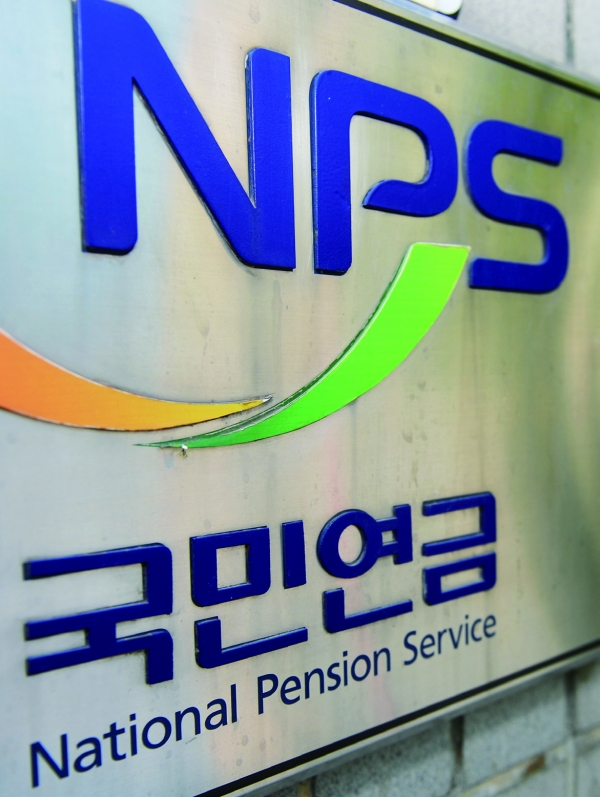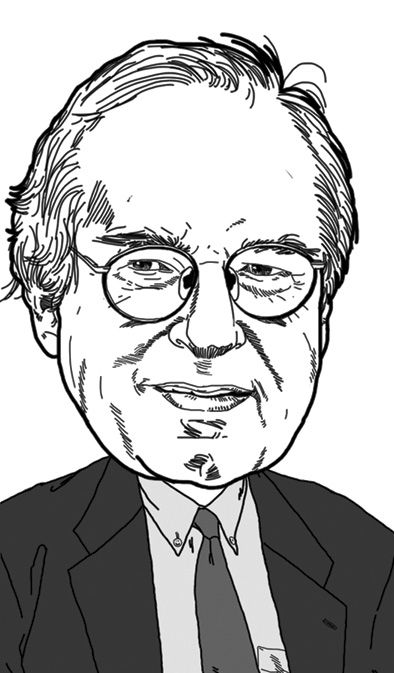한국의 국민연금은 세계 어느 곳보다 커다란 거대기업이다. 그것은 한국의 기적을 이끌어온 것으로 묘사되는 재벌제도에 정부의 특별한 영향력을 행사하는 괴물이다.
그 관계는 양쪽에 영향을 미친다. 재벌은 그들이 통제하는 것을 저지하거나 약화시키려는 주주집단과 외국 투자자들의 시도에 반대하며 기업 승계자들이 넘어지지 않도록 강하게 지원하며 정부에 대해 그들 자신의 영향력을 행사한다.
국민연금이 재벌의 편을 드는 한 가족이 통제하는 재벌기업은 한국 경제에 있어 가장 중요한 독립체에 대한 역사적이고 상속된 역할을 유지할 수 있다. 재벌의 힘은 한국의 두 개 거대기업인 삼성전자와 현대자동차 창업자의 유일한 아들들의 승계권을 막고자 하는 행동주의로 알려진 미국의 헤지펀드인 엘리엇의 시도를 깨끗이 방어했다.

사실 이건희 삼성전자 회장(77)은 심장병으로 쓰러진 후 의사소통이 불가능한 코마상태에 있어 그의 아들 이재용 수석부회장이 삼성왕국을 지배할 수 있는 통제권이 필요하다.
지난 3월 81세 생일을 지낸 정몽구 현대자동차 회장은 그의 아들 정의선 현대차 수석부회장이 문제없이 경영권을 승계할 수 있도록 갈망하고 있다. 어린 이재용과 정의용은 한국 경제의 전설인 그들의 할아버지, 즉 고 이병철 삼성 회장과 고 정주영 현대 회장이 창업한 산업과 재정면에서 막 뻗어가는 삼성과 현대 왕국의 3세대 상속자로 자리매김했다.
이들 위대한 삼성과 현대 가족 드라마에 있어, 국민연금은 경영권 계승자들에게 더 많은 지분을 제공하기 위해 자회사들을 합병시키는 것을 반대해온 엘리엇의 공격을 막는 데 중요한 역할을 해왔다. 세계 3위로 4300억 달러의 국민연금은 자산이 5600억 달러의 기업을 통제한다. 엘리엇이 삼성의 지주회사인 제일모직과 삼성물산이 합병하는 것을 반대하는 데 실패한 것은 전혀 놀랄 만한 일이 아니다. 삼성전자의 11% 주식을 보유한 국민연금은 주주종회에서 캐스팅보트를 행사한다.
이러한 합병 의혹과 스캔들은 보수성향의 박근혜 대통령을 탄핵하고 권좌에서 물러나게 만들며 2년전 진보성향의 문재인 대통령을 당선되도록 만들었다. 박근혜 전 대통령은 뇌물혐의를 포함해 많은 다른 혐의로 33년형을 받고 투옥되어 있으며 이재용 회장은 뇌물혐의로 유죄판결을 받고 1년간 복역하다 석방됐다.
이와 같이 논란이 일고 있는 투표에서, 현대자동차의 8.7% 지분을 소유하고 현대모비스의 9.45% 지분을 소유한 국민연금은 지난 3월 이들 두 기업의 합병을 반대하는 엘리엇의 공격을 막아냈다. 더구나 국민연금은 현대자동차의 이사회에 사외이사를 추천하려는 세계 최대의결권자문사(ISS)의 추천에 반대하는 반대표를 던졌다. 현대자동차의 이윤이 하강세를 보이는 시기에 국민연금은 60억 달러의 이익배당금을 요구한 외국 기업인 엘리엇에 반대하며 현대차의 손을 들어줬다.
고갈 위험에 처한 국민연금
삼성에 대한 책을 집필하고 있는 제프리 카인(Geoffrey Cain) 씨는 ”세계에서 가장 선진화 된 경제와 민주적 방법으로 성공한 기업의 미래가 균형을 이룰 때, 연금 공무원들이 발전을 방해하지는 않을 것“이라고 말한다. 그는 ”그러나 한국의 주주총회에서 투표권을 행사하는 것은 대통령들이 수 십 년 동안 개혁을 맹세해온 전능한 기업의 현 상태 입장을 지지하는 것이라”고 말했다.
한국 재계의 5~10%의 지분을 갖고 있는 국민연금(NPS)는 “급속도로 고령화되고 있는 인구의 은퇴 저축을 보호하고 성장시켜야 한다. 투자 된 가난한 기업을 악명 높게 지배하는 구조를 개선해야 한다.”
국민연금은 현 상태의 비율로 보건대 돈이 고갈될 위험에 처해 있다. “모든 한국인들은 은퇴 후 연금에 수입을 의존한다”며 2056년에는 국민연금의 자본이 고갈될 것이라고 강태준 씨는 ‘더디플로메트’에 기고했다. 무서운 일이다. 다른 말로 바꾸면 2057년부터는 국민들에게 제공할 연금이 하나도 남아 있지 않다는 뜻이다. 국민연금은 은퇴 후 고정액수를 약속하며 연금납부자들에게 그들이 납부한 금액보다 더 많은 현금 혜택이 주어질 것이라고 말한다.
또 다른 문제는 국민연금이 경제 전반에 영향력을 끼치는 것이다. 문재인 대통령은 경제개혁을 약속할지 모르지만 국민연금이 그 돈을 더 잘 활용할 수 있는 방안을 별로 강구하지 않으며 국민연금에 대해서는 별로 통제를 하지 않았다. 정부, 국민연금과 재벌과의 관계가 한국 사회의 심장부에 자리 잡고 있다. 다른 주요 투자자들처럼, 국민연금의 목표는 이론적으로 그들 자신의 이익을 유지하고자 하는 재벌 가족들에 굽신거리는 것보다 오히려 투자에 대한 이익을 창출해야 한다.
국민연금의 딜레마는 미국의 사회보장제도와 다른 국가의 연금제도과 유사점을 갖고 있다는 것이다. 미국에서는 비관론자들이 25년 안에 사회보장제도가 무너질 것이라고 예측한다. 90%의 은퇴한 미국인들이 생존할 수 있는 사회보장제도가 무너진다는 것은 믿을 수 없는 충격이다. 국민연금과 달리 미국의 사회보장제도는 고령의 시민들에게 의료보험의 혜택을 주는 메디케어(Medicare)와 가난한 사람들에게 의료 혜택을 주는 메디케이드(Medicaid)를 다룬다.
국민연금과 사회보장제도의 차이점은 사회보장 당국은 회사에 돈을 투자하지 않는다는 것이다. 오히려 그 돈은 어떤 확실한 이익을 얻는 곳에 신뢰를 바탕으로 집행하며 미국의 주식시장이나, 기업 합병, 외국 투자자들의 간섭을 막기 위해 회사를 통제하지 않는다는 것이다.

<번역 미래한국>
Korea’s NPS: More than a Pension Fund, It Exercises Huge Power over Korean Companies and Society
Korea’s National Pension Service is a behemoth like none other in the world. It is the monster that gives the government extraordinary leverage over the chaebol system that’s often been described as “the engine of the Korean miracle.”
The relationship works both ways. The chaebol wield their own influence over the government, counting on support in high places to prop up the heirs against attempts by shareholders’ groups and foreign investors to undercut and undermine their control. As long as the NPS is on their side, family-controlled chaebol can be sure of maintaining their historical, inherited roles over the most important entities in the Korean economy.
The power of the chaebol has never been so clear as in two attempts by Elliott Management, a New York hedge fund with an activist reputation, to derail attempts at Korea’s two hugest companies, Samsung Electronics and Hyundai Motor, to guarantee the succession of the only sons of the chieftains of both of them. The fact is that Lee Kun-hee, 77, chairman of Samsung Electronics, stricken by a heart attack, remains comatose, unable to communicate, while his son, Lee Jae-yong, “J. Y. Lee,” executive vice chairman, needs to shore up his grip over the empire. Chung Mong-koo, chairman of the Hyundai Motor group, having celebrated his 81st birthday in March, is anxious to make sure his son, Chung Eui-sun, executive vice chairman, also is positioned to take over without a hitch. The younger Lee and the younger Chung are first in line to become third-generation heirs to sprawling industrial and financial empires founded by their grandfathers, two of Korea’s legendary tycoons, the late Lee Byung-chul of Samsung and the late Chung Ju-yung of Hyundai.
In both these great family dramas, the National Pension Service has been crucial to fending off Elliott Management, which fought each time against mergers of subsidiaries intended to provide more shares to the heirs. NPS, whose $430 billion make it the world’s third largest pension fund, controls a total of about $560 billion in assets. It was no surprise, then, when Elliott four years ago lost its battle to stop Samsung C&T from taking over Cheil Industries , a central holding company of the Samsung empire. The NPS, which holds 11 percent of the shares in Samsung Electronics, cast the deciding vote in a shareholders’ meeting.
It was that merger that ignited the prolonged series of arrests and scandals that resulted in the final impeachment and ouster of the conservative Park Geun-hye and the election two years ago of the liberal Moon Jae-in as president. Park remains in jail, having been sentenced to 33 years on a wide range of charges, including corruption, while J.Y. Lee was imprisoned for a year until a judge let him go after upholding his conviction for bribery.
Then, in an equally controversial vote, the National Pension Service in March blocked Elliott’s attempt to stop the merger between Hyundai Motor, in which it holds 8.7 percent of the shares, and Hyundai Mobis, 9.45 percent owned by the NPS. The NPS even voted against recommendations by International Shareholder Services, a global advisory firm, for Elliott at least to have some seats on Hyundai Motor’s board of directors. At a time when Hyundai Motor is struggling against declining profits, obviously the NPS acted as the strongarm on behalf of chaebol interests against reforms demanded by a foreign firm for more than $6 billion in dividend payments.
“When the future of one of the world’s most advanced economies and democratic success stories hangs in the balance, you wouldn’t think its pension officials would stand in the way of progress,” writes Geoffrey Cain, author of a forthcoming book on Samsung. “But votes cast in shareholders’ meetings in Seoul,” he observes, “indicate that they are buttressing an all-powerful business status quo that presidents have been vowing to reform for decades.” Holding between five percent and ten percent in Korean chaebol, the NPS needs “to guard and grow the retirement savings of a rapidly aging population, which should give it a stake in improving the notoriously poor corporate governance of the companies it’s invested in.”
The great danger is that the NPS, at the rate it’s going, will give out of money. “Almost every single South Korean citizen depends on this pension for income after retirement,” writes Kang Tae-jun in The Diplomat, while “the fund is expected to run dry by 2056.” The implications are frightening. “In other words,” says Kang, “there will be no money left beyond 2057 to provide pensions to the public.” One factor: “the NPS promises contributors a fixed amount after retirement, and the pension is intended to give more to pensioners than they contributed.”
Another problem is the overweening power of the NPS over the entire economy. President Moon Jae-in may promise economic reforms but has done little to rein in the power of the fund, much less to find a better way for the fund to spend its money. The relationship between the government, the NPS and the chaebol lies at the heart of Korean society. Like any major investor, the goal of the NPS theoretically should be to profit from its investment rather than to kowtow to chaebol families anxious to maintain their own interests.
The dilemma of the NPS bears a disturbing parallel to that of the American social security system and pension funds in other countries. In the U.S., pessimists predict that social security will run out in 25 years. That would be an incredible blow to American retirees, 90 percent of whom count on social security to survive. Unlike the NPS, U.S. social security also controls Medicare, an insurance plan for senior citizens, and Medicaid, which provides medical aid for the indigent.
The difference between NPS and social security, though, is that the Social Security Administration is not investing funds in companies. Rather, the money is held in trust, gaining a certain interest but not a factor in the U.S. stock market, in mergers and acquisitions, in controlling companies while fending off foreign investors.
외부게재시 개인은 출처와 링크를 밝혀주시고, 언론사는 전문게재의 경우 본사와 협의 바랍니다.


